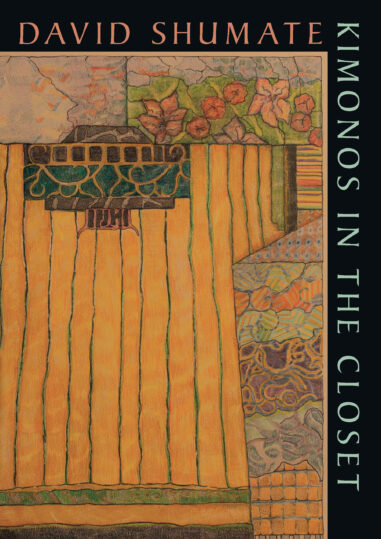
Paperback $20.00
Request Exam or Desk Copy. Request Review Copy
Kimonos in the Closet
These are enormously arresting, odd, wryly humorous, gripping poems. And the variety of subject matter is astounding. I don't know when I've enjoyed reading a book so much.

